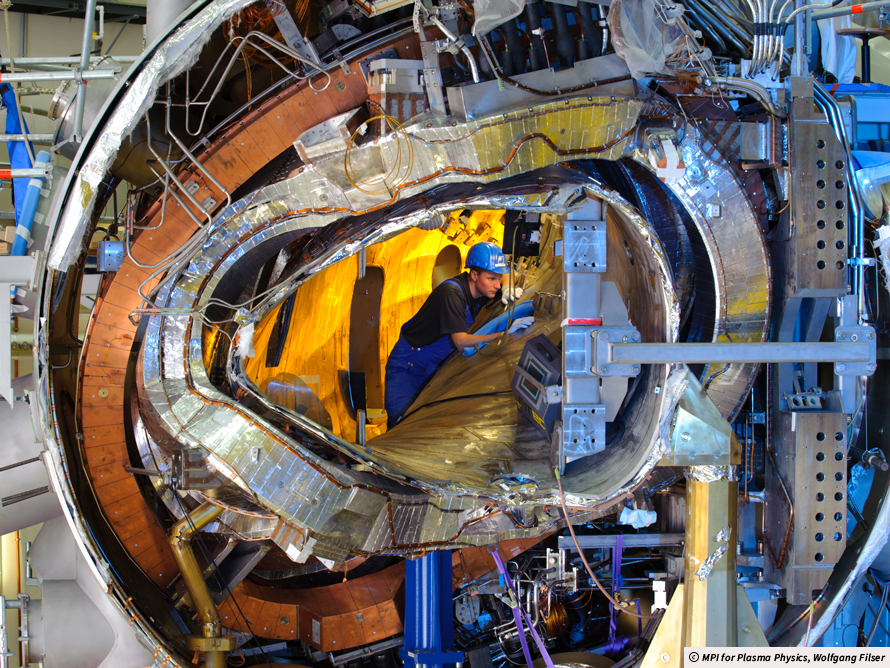Could nuclear fusion save the planet? Scientists have made a huge breakthrough towards creating limitless clean energy. But not everyone thinks it is worth the effort.
Stunning leap towards limitless energy
 Power: The 43-second breakthrough was achieved in the Wendelstein 7-X Stellarator, which is named after the Wendelstein mountain in Bavaria, Germany.
Power: The 43-second breakthrough was achieved in the Wendelstein 7-X Stellarator, which is named after the Wendelstein mountain in Bavaria, Germany. Glossary
Greenhouse gases - Greenhouse gases, which increase the atmosphere's capacity to hold heat, are vital to life on Earth: without them the planet would be freezing. But human activity is disturbing the delicate balance that created the conditions for life as we know it. Carbon dioxide is responsible for 60% of the manmade greenhouse effect, but we also produce smaller quantities of methane, ozone and nitrous oxide, which are even more damaging.
Global warming - The Earth is getting hotter due to climate change.
Nuclear fusion - A potential means of generating nuclear power by combining two atoms to produce a new atom as well as a large amount of energy. It mimics the way in which stars produce energy.
Nuclear fission - A nuclear reaction in which nuclear material, usually uranium, is split into smaller atoms, creating excess energy that can be harvested.
Neutrons - A subatomic particle with no electric charge, found in the nucleus of an atom.
Nuclear - A nuclear weapon has a devastating potential to cause damage. A few countries around the world have them.
Uranium-235 - An isotope of uranium that is capable of sustaining a fission chain reaction.
Hydrogen - The first element in the periodic table, and the most common element in the Universe. Stars are mostly made up of hydrogen.
Atoms - The smallest unit of any chemical element.
Collide - When two objects crash or hit each other.
Helium - A very light gas used in balloons to make them float. Old airships used hydrogen, but it burnt easily. Helium does not burn.
Fossil fuels - Fuels made from decomposing plants and animals, including coal, natural gas and oil. These fuels release carbon dioxide, causing global warming.
Solar power - Energy from the sun, which can be captured by solar panels and used to produce electricity.
